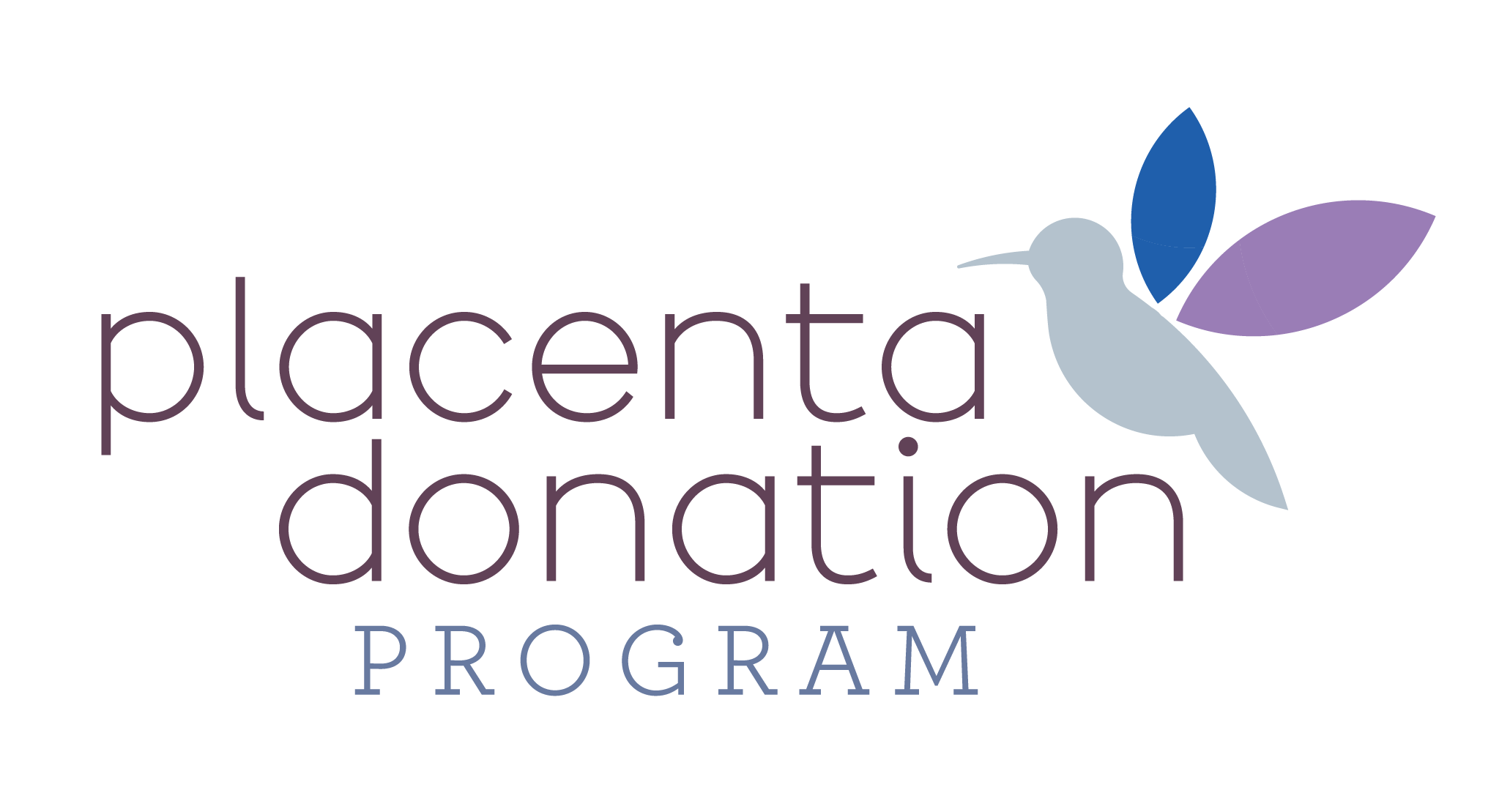An Opportunity to Help Someone in Need
Did you know that the gift of life can also be the gift of hope to a patient in need?
After your baby is born, the placenta (or afterbirth) is usually discarded as medical waste, but it can actually provide a precious gift.
Doctors can treat hard-to-heal wounds such as diabetic foot ulcers, venous leg ulcers, and burns using placental-based tissue as a protective barrier. This tissue can also be used in surgical procedures.

Donating Is Easy and Poses No Risk for You or Your Baby.
Mothers who deliver via Caesarean section with a participating physician, are eligible to participate in our placental donation program. Donation is:
- SAFE
There is no additional risk. The health of you and your baby remains top priority, as the placenta is recovered.
- SIMPLE.
Once you formally consent, you only need to answer a series of questions regarding your medical and social history, similar to those answered when giving blood.
- PAINLESS.
No extra procedures are required. A routine blood test will be conducted simultaneously with your admission blood draw on the day of surgery.
- FREE.
There is no cost to you or your family.
- SAFE
There is no risk. The health of you and your baby remains top priority, as the placenta is recovered.
- SIMPLE.
Once you formally consent, you only need to answer a series of questions regarding your medical and social history, similar to those answered when giving blood.
- PAINLESS.
No extra procedures are required. A routine blood test will be conducted simultaneously with your admission blood draw on the day of surgery.
- FREE.
There is no cost to you or your family.
Ask your doctor about donating your placenta. If your physician is not a participating member and you wish to donate, please have your doctor’s office reach out to us for additional details.
The placenta is essential for a healthy pregnancy: protecting and supporting the development of your baby over the course of gestation.
The composition of this tissue contains unique properties, unlike any other, and it can be repurposed as a protective barrier to support the healing cascade. Your donation is the foundation of advanced products used to improve the quality of life for many patients in need.
Donating is Easy and Poses No Risk For You or Your Baby.
Mothers who deliver via Caesarean section with a participating physician, are eligible to participate in our placental donation program. Donation is:
- SAFE
There is no risk. The health of you and your baby remains top priority, as the placenta is recovered.
- SIMPLE.
Once you formally consent, you only need to answer a series of questions regarding your medical and social history, similar to those answered when giving blood
- PAINLESS.
No extra procedures are required. A routine blood test will be conducted simultaneously with your admission blood draw on the day of surgery.
- FREE.
There is no cost to you or your family.
Ask your doctor about donating your placenta. If your physician is not a participating member and you wish to donate, please have your doctor’s office reach out to us for additional details. Our contact information can be found on the back panel.
The placenta is essential for a healthy pregnancy; protecting and supporting the development of your baby over the course of gestation.
The composition of this tissue contains unique properties, unlike any other, and it can be repurposed as a protective barrier to support the healing cascade. Your donation is the foundation of advanced products used to improve the quality of life for many patients in need.
Download our printable brochure and talk to your doctor about donating.
About Us
We specialize in placental-derived, advanced therapeutic treatments for a variety of medical procedures.
We are dedicated to ensuring the highest standard of integrity and care throughout the entire process, starting with donation. We are committed to:
- Seamless communication between you and your family, your physician, and our donation specialists
- Strict compliance with safety and quality policies, in accordance with the American Association of Tissue Banks (AATB) standards
- Unyielding commitment to your safety and understanding of the entire process
- Creating innovative solutions through the development of placental-based allografts
About Us
We specialize in placental-derived, advanced therapeutic treatments for a variety of medical procedures.
We are dedicated to ensuring the highest standard of integrity and care throughout the entire process, starting with donation. We are committed to:
- Seamless communication between you and your family, your physician, and our donation specialists
- Strict compliance with safety and quality policies, in accordance with the American Association of Tissue Banks (AATB) standards
- Unyielding commitment to your safety and understanding of the entire process
- Creating innovative solutions through the development of placental based allografts

FAQ
The placenta connects the developing fetus via the umbilical cord to the uterine wall. The amniotic membrane encloses the developing fetus. The amniotic membrane is derived from the inner and outer layers of the amniotic sac and is comprised of two distinct but conjoined membranes – amnion and chorion. The amnion faces the fetus and the chorion faces the uterus.
For patients with challenging wounds (e.g., non-healing ulcers) or requiring surgical procedures, amniotic-based therapies are a valuable treatment option. The amniotic membrane is a protective barrier that supports the healing cascade.
No. Placenta donation is not related to cord blood donation. Cord blood is the blood that remains in your baby’s umbilical cord after it has been cut.
Yes, donation or collection for storage (banking) of cord blood through other organizations is possible during placenta donation.
MIMEDX currently does not offer cord blood banking.
Any expectant mother with a planned Caesarean section delivery can donate, as long as there are no disqualifying medical conditions and her physician is a participating member of MIMEDX’s Placenta Donation Program. If your physician is not a participating member of the Placenta Donation Program and you wish to donate, please inform him/her of your decision first, and then contact us.
Placental donation is available to mothers age 16 and above. The placenta is accepted after a healthy full-term, planned Cesarean section.
Any illness which could be transmitted to a recipient, including viruses and certain types of infections, will prevent you from donating.
MIMEDX must perform a blood test for each placenta donor to ensure the safety of the tissue recipient, and MIMEDX employees, from the transmission of infectious disease.
A blood sample obtained for serological testing is collected from the donor mother during routine blood specimen collection prior to the scheduled delivery. The blood specimen is tested for the following: HIV, HTLV, Hepatitis B, Hepatitis C, and Syphilis. The blood specimen may also be tested for Cytomegalovirus, Toxoplasma, West Nile Virus, and Parvovirus.
Confirmed positive results for infectious diseases will be reported to your physician, as required by law. All blood test results are kept on file at MIMEDX and can be requested by your physician.
No. Neither you nor your family will be responsible for any costs related to placenta donation. All expenses related to donation are paid by MIMEDX.
Absolutely not. There are no additional risks to you or your baby. The placenta will not be recovered until after the Caesarean section delivery, and there is no additional surgery.
MIMEDX has adopted stringent procedures to protect the confidentiality of patient information and insure that it is only used and disclosed on a need-to-know basis in furtherance of the purpose for which the tissue is donated.
No. We are extremely appreciative of this act of charity; however, due to federal laws, we cannot provide any monetary compensation.
Most religions support tissue and organ donation. If there is any doubt about your religion’s views, contact your religious leader.
For decades, amniotic membrane has been used successfully in soft tissue surgery and as an advantageous substitute or adjunct for skin grafts harvested from the patient’s own tissue.
Due to the immunological and histocompatibility characteristics of the amnion, amniotic tissue does not have to be directly matched with a potential recipient. This is very advantageous, since amnion can benefit a large patient population and makes your donation that much more helpful.
Unfortunately, we are unable to disclose this information due to patient confidentiality.
We encourage participation from physicians and welcome any interested physician to contact us at 855.272.3988 to receive further information.
For more information, contact MIMEDX at 855.272.3988, or complete the contact form found in the main menu of this site and a representative will be more than happy to contact you.

